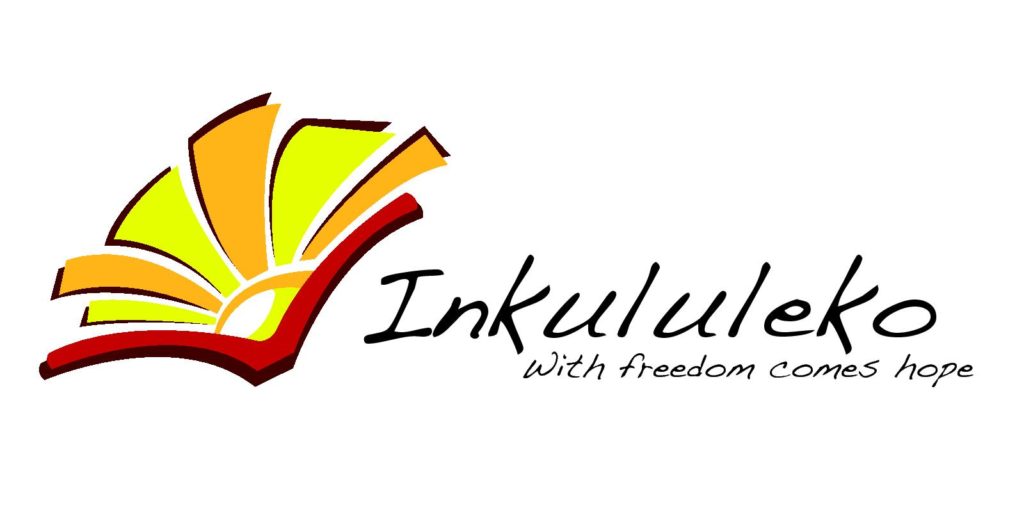
Beneficiary guest blog: Inkululeko
By AdministratorAs citizens of a nation just over two decades into democracy, we know that achieving success in the next two decades relies on equipping capable, educated agents of change.
Those agents of tomorrow? They’re in our classroom today.
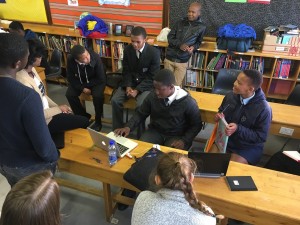 A Department of Basic Education report shows that in South Africa, less than 20% of students finish grade 12 by the age of 18.
A Department of Basic Education report shows that in South Africa, less than 20% of students finish grade 12 by the age of 18.
Inkululeko contributes to the new South Africa by meeting tomorrow’s leaders where they’re at today. We offer free tutoring, access to computers and the internet, transportation, exam prep, a library of textbooks and regular books (and snacks too!) to young people beginning in grade eight, and remain with them through grade 12.
ASANELE
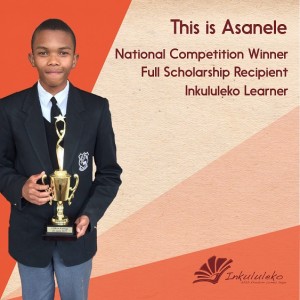 Let me tell you about Asanele. He’s an Inkululeko learner who loves to talk about Albert Einstein and counts Elon Musk among his idols. Asanele is serious about science. When we took him to the National Science Festival he asked so many questions, the presenter was getting annoyed so he whispered to other people questions that he wanted to have answered so they could ask.
Let me tell you about Asanele. He’s an Inkululeko learner who loves to talk about Albert Einstein and counts Elon Musk among his idols. Asanele is serious about science. When we took him to the National Science Festival he asked so many questions, the presenter was getting annoyed so he whispered to other people questions that he wanted to have answered so they could ask.
A few years ago, with our help, he went – quite nervously – to a National Science Competition where he competed against other accomplished young people from schools far more resourced than his.
He won… big. Asanele got a four-year scholarship to any institution in all of South Africa. He’s currently studying at Rhodes University.
SELUNATHI
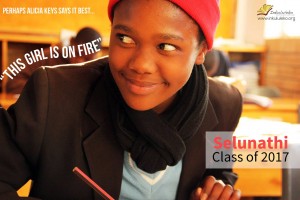 Another student, Selunathi, came to us in grade eight. She never questioned authority—even when we were wrong. She’d smile, and return to studying.
Another student, Selunathi, came to us in grade eight. She never questioned authority—even when we were wrong. She’d smile, and return to studying.
At Inkululeko, we’ve sought to create an organization that supports learners with finishing school and empower learners like Selunathi to politely stand up and respectfully question authority, whether at Inkululeko or in the community.
This is not easy in any environment, but it’s especially difficult in a country like South Africa that, less than thirty years ago, had essentially two completely different school systems: one highly performing, well-funded system for white students and another for students of color, which was entirely focused on rote learning and preparing students for futures as menial laborers. While the Bantu Education system has been abolished, many teachers today were educated in that system. Therefore, rote learning and discouraging respectful dissent remains commonplace.
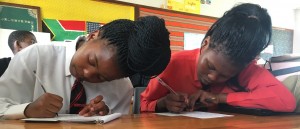 We’ve worked hard to create a space where learners are encouraged to lead, to disagree, to debate and to compromise.
We’ve worked hard to create a space where learners are encouraged to lead, to disagree, to debate and to compromise.
A seminal moment took place in summer 2016. Students and faculty of an American university came to work with Inkululeko. One project involved working with learners in our program to research healthier snacks we could provide to our learners after school with a very limited budget.
The U.S. college students began working and came up with a plan that, while healthier, would have more than doubled the amount we spent each week. I had expressed my concerns about the budget ramifications in private meetings I had with the American students.
They chose not to listen, and pressed ahead with their presentation.
The Inkululeko classroom was quiet.
The U.S. student team began to detail their ideas for healthier snacks and left out the costs associated with their plan.
When question time came, Selunathi’s arm shot up.
“Thank you for presenting,” Selunathi said disarmingly.
“I’m wondering,” Selunathi began. “Did you think what this will cost and whether we have the money to do it?”
The presenters fumbled around for a minute or two about the importance of healthy snacks before Selunathi, politely, cut them off.
“You have not answered me,” she said. “My question is not about healthiness. It’s about the cost.”
“Ewe" (“yes” in isiXhosa), joined Sinoxolo, another learner. “She’s right. How much will this cost?”
The presenters again attempted to answer, but evaded the cost question.
“Hayi, wena" (“no, you” in isiXhosa), said, Khusta, another learner. “You’re not answering the question about the budget.”
Our Inkululeko learners were relentless. They were polite. They were engaged. They were listening. They were questioning. In the end, the presenters relented and shared that the cost would skyrocket under their proposal.
Watching it all unfold and seeing our learners politely push back was one of my proudest moments as a part of this organization.
Selunathi, the shy student who came to us in grade eight, is currently a second-year student at Rhodes University.
Not all of our students are like Asanele or Selunathi – not everyone is meant to, or wants to, go on to university. For that reason, we also have a social enterprise – a café made out of a repurposed storage container. The café offers hands-on learning for those who possess an entrepreneurial mindset. It shows how the math learned in the classroom translates to math that can be used to calculate profit margins; it shows how business studies are relevant when you’re marketing something like a café and looking at customer demographics.
According to StatsSA, those most vulnerable to the scourge of poverty are black South Africans under the age of 17 living in places like the Eastern Cape – precisely where Inkululeko operates.
Each year, when Inkululeko re-opens at the beginning of the school year, there are far more applicants than spots available. We want to work with people like you to expand our capacity to serve more young people each year.
After all, we know there are more students like Asanele and Selunathi out there. We’re hoping you can help us reach them.
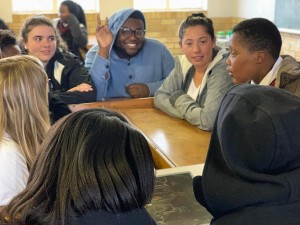 Inkululeko is a beneficiary of our Humanist Grants program. More information about Inkululeko is available on their website at inkululeko.org. You may contribute to our Humanist Grants program here.
Inkululeko is a beneficiary of our Humanist Grants program. More information about Inkululeko is available on their website at inkululeko.org. You may contribute to our Humanist Grants program here.
